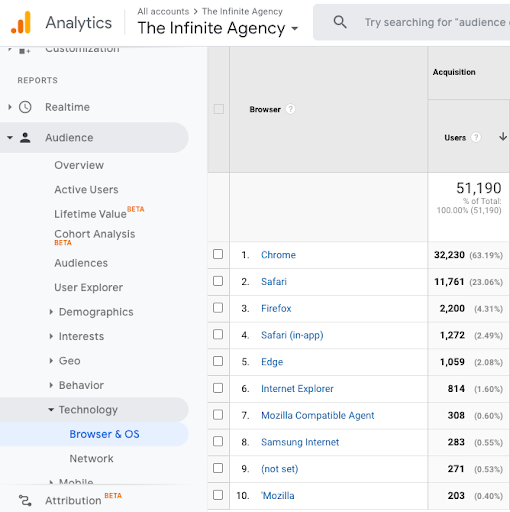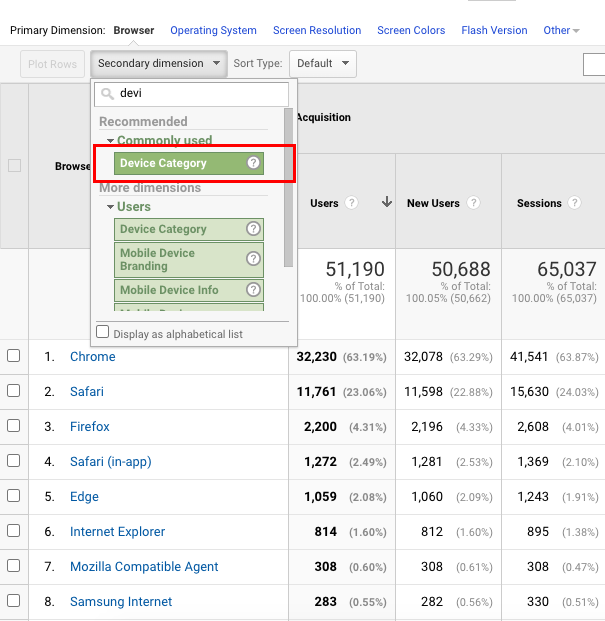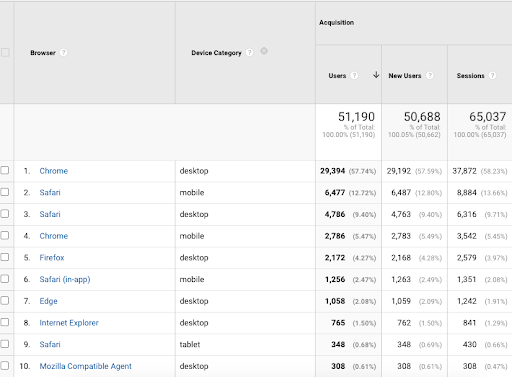So, What’s All the Fuss About Headless CMS?
If you do much web development these days, chances are you’ve heard the term “headless CMS” or “decoupled CMS.” “Headless”...
Read More »
In the wake of massive data breaches by tech companies, Apple has shifted its focus to protecting consumers from privacy abusers. During Apple’s annual Worldwide Developer Conference (WWDC) held on June 22, it was discovered through a screen capture, that “Google Analytics” may be automatically blocked by Apple’s upcoming privacy features.

The new privacy feature, aptly named Privacy Report, will roll out to Apple desktops this fall, as part of the macOS update “Big Sur”. Privacy Report will allow users to easily see and choose which tracking codes are blocked by Safari browser, giving them complete control of their data. What has marketers concerned, was an official screenshot that showed Google Analytics among the websites blocked by Privacy Report, although it’s unconfirmed by Apple if this is a default setting.
Privacy is so important to Apple with this update, it’s even being touted as a key feature:
“Privacy has always been built into Safari, and a new Privacy Report delivers added visibility into how Safari protects browsing activity across the web.
Users can choose when and which websites a Safari extension can work with, and tools like data breach password monitoring never reveal your password information — not even to Apple.”
If Apple does indeed block Google Analytics, it will impact traffic reporting for webmasters. As of May 2020, Safari accounts for 9.4% of all desktop browser market share, meaning if this feature is defaulted many users will go unaccounted for. At this time, there is no way to account for users who block GA tracking codes, such as those in Incognito mode.
This update will not be released to mobile devices, an area where Safari makes up roughly 25% of the mobile browser market.
To understand how big of an impact this could have on your web traffic reporting, we recommend reviewing your Safari browser traffic from the last 2 years. To do so, open up Google Analytics and head to the Audience report. From there open Technology, then Browser & OS (Audience > Technology > Browser & OS).

On this screen you’ll be able to see your visitors broken down by their browser. However, since this update does not impact mobile Safari users, we need to filter this data by device to only see desktop Safari users. Just above your data, click the Secondary Dimension tab, and select Device Category.

Once applied, you’ll be able to see how much traffic is attributed to Safari desktop users. In Infinite’s case, Safari Desktop traffic made up 9.4% of our overall traffic during the last two years.

Whether it was oversight or a deliberate message by Apple to Google, it’s still too early to determine what steps should be taken. What’s more, neither Apple or Google have confirmed whether Analytics will be blocked by default by the upcoming update. And it’s still not known whether Apple is simply blocking access to third-party storage or blocking GA tracking entirely.
Apple’s new privacy features have undoubtedly caught every digital marketer’s attention, but it’s not time to panic yet. It’s important to remember that all current information on GA being blocked comes from a single image. Until we learn more, we recommend business as usual.
In the meantime, we will continue to monitor updates from both Google and Apple official channels and inform you as they release information.